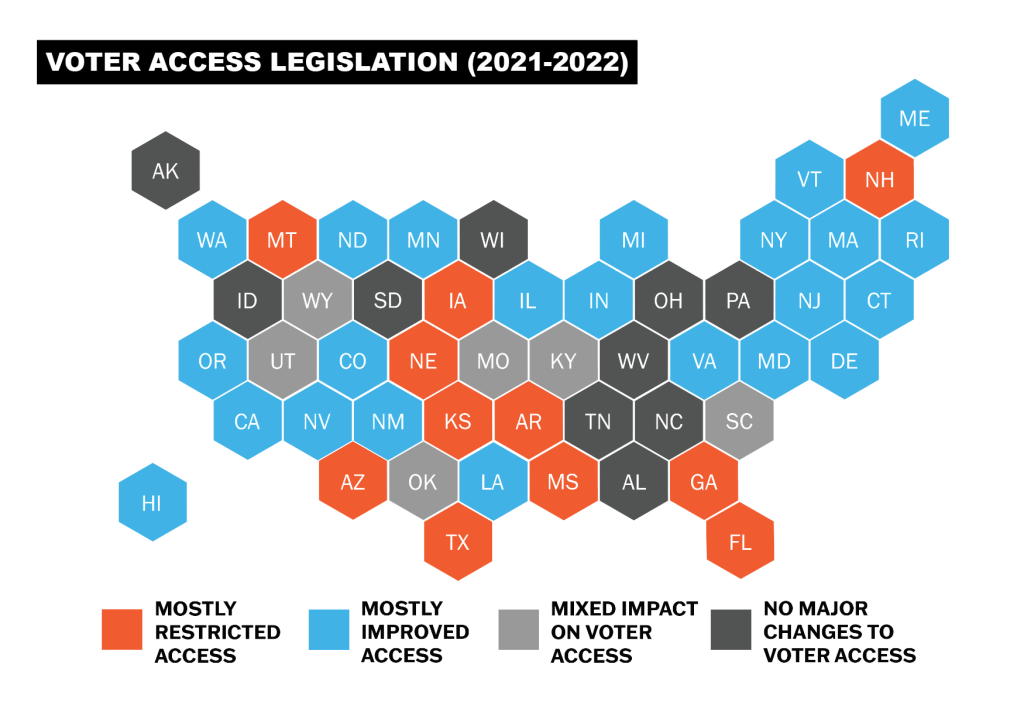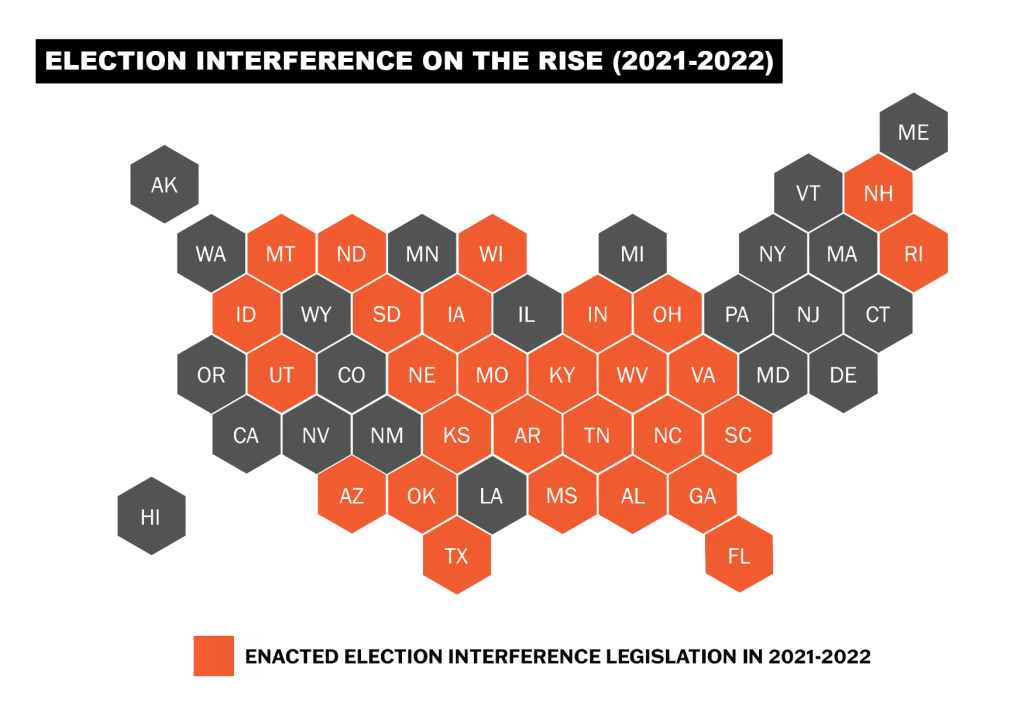Report
The State of State Election Law Since 2020
The years since the 2020 election were the most prolific for election law in recent history, with new laws impacting how people vote and how our elections are run enacted in nearly every state across the country.
In the two years since the 2020 election, nearly every voter in the country has likely experienced some kind of change in their state’s election law – whether in how they register, the options they have to cast their ballot, or in how or when their ballot is counted.
The Voting Rights Lab’s newest report — “The State of State Election Law Since 2020” details changes to state election law that defined 2021 and 2022, shaped the 2022 midterms, and will affect the 2024 presidential election as new legislation is prefiled for 2023.
From 2021-2022, our team at the Voting Rights Lab has tracked more than 3,600 bills in state legislatures across the country. This includes 368 bills that were enacted or adopted, 46 that were vetoed after passing the legislature, and 276 that passed at least one legislative chamber that either failed or remain pending.
Snapshot: Voter Access Changes in 2021 – 2022
As noted in previous reports, we’ve witnessed a widening fault line between states expanding voting access and those restricting it. In total:
- 23 states generally improved voter access since 2020;
- 11 states generally restricted voter access since 2020, and
- 6 states passed laws with mixed effects on voter access since 2020
Of note, some issues like early voting trended in a positive direction across the board, with many states, including Kentucky, Missouri, South Carolina, and Connecticut giving voters more time to cast their ballot ahead of Election Day.
On the other hand, mail voting offers a clear example of an issue where states continue to move in starkly different directions.

Snapshot: Election Interference and Criminalization in 2021 – 2022
Over the past two legislative sessions, 28 state legislatures have passed legislation that interferes with the fair, nonpartisan administration of elections. Among these attacks are bills that shift the power to oversee elections to partisan actors; threaten election officials with felony charges; provide for partisan-motivated, standardless reviews of certified election results; escalate the investigation and prosecution of purported election crimes; and more.

As we move into 2023, our team at Voting Rights Lab will be keeping a close eye on these developing trends. As always, you can follow along in real-time with our State Voting Rights Tracker, which tracks election legislation and current election law in all 50 states.